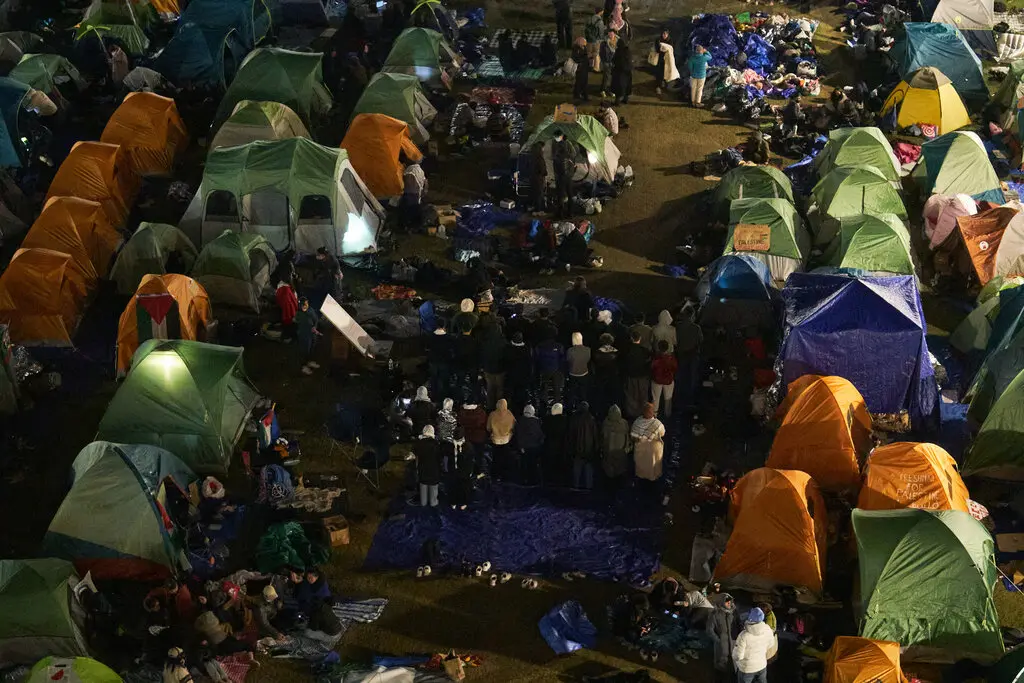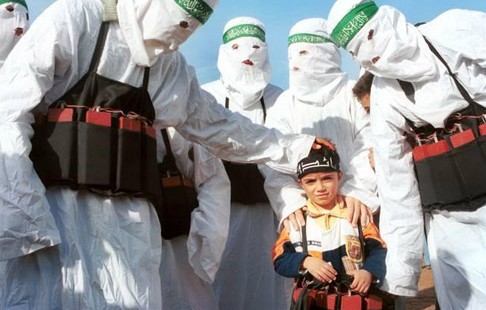Some of my fellow alums are troubled by the events on campus

Journalists, especially those educated at such superb institutions as the Columbia University Graduate School of Journalism, care about truth, thoroughness, accuracy and free speech. This is evident in the alumni site for the school, which lately has carried some complaints about flaws alums see in major media coverage of campus protests.
For instance, Lizzie Bibb (class of ’83) said her daughter visited the Columbia campus recently “and reported that the tent encampment was peaceful, Jewish students were present and welcomed, and a Passover seder was held yesterday.” She asked: “What is a college education if not an opportunity to learn critical thinking skills, as well as a ‘safe’ place in which to exercise self-expression and engage in thoughtful debate?”
Another alum, Steven Manning, asked whether the J School students are covering the events. “They’ll never cover a bigger story of the blatant violation of student and free speech rights,” he suggested.
And two alums – digital communications consultant Bessie King, 39, and film director Norman Green, 67 – jousted off the alum site, in the Daily Beast. Green blasted the protestors as “nihilistic pro-terror wack jobs,” adding: “At some point, murderous crackpots attacking Jews need to be held accountable. Our students deserve to be protected from them.” For her part, King called his views “hateful” and “delusional,” and chastised Green for “immediately jumping to the conclusion that a pro-Palestine peaceful protest equals: ‘Kill all Jews.’”

Indeed, as the administration negotiates with the students about removing their encampment, I hope that students at the J School are covering the events. The college paper, the Columbia Spectator, has been doing so pretty well, it seems to me. As students with IDs, its young journalists have access to the private campus, while major media don’t. But it and radio station WKCR are usually staffed by undergrads not affiliated with the graduate J School.
While the students camping on the grounds don’t appear to be violent, some of the reporting has very much been at odds with what Bibb’s daughter observed, nonetheless. As pro-Israel counter-protestors stood on the Sundial on Saturday evening waving Israeli and U.S. flags, for instance, “an individual held a sign reading ‘Al-Qasam’s Next Targets’ with an arrow pointing at the protesters. Al-Qassam is the military wing of Hamas,” the paper reported.
Some Jewish students – perhaps those agreeing with the protests — found little hostility, bit others reported a fair bit of it.
“What’s funny about Hamas killing Jews? What’s funny about it?” Rachel Freilich, CC ’27, asked a student who was laughing and taking pictures or recording on his phone, the paper reported. “It had me wondering if someone on my campus not only is just going to glorify and justify Hamas’ terror attacks, call on them to come and kill me next, and then laugh about it, like why should I stay here, at a place that seems to be failing to protect me and calling on terrorists to come into the University and kill me?”
In a video the paper mentioned, people at the Sundial shouted at the pro-Israel protesters, “Go back to Europe” and “All you do is colonize.”
And official student groups have found much to worry about. “We have recently received reports of death threats, antisemitic rhetoric, and stalking targeted against our Jewish students,” a statement by the Columbia College Student Council, General Studies Student Council, and Barnard’s Student Government Board said. CCSC. “While we support every student’s right to engage in legitimate and peaceful political discourse, violence and speech that incites violence against minority groups in our very own community is unacceptable.”
Good journalism, of course, should flesh out such reports of harassment – and do more, detailing both the concerns and depth of knowledge among the protestors. Were I teaching undergrads or grad students at Columbia, I’d suggest some key questions they should pose to the demonstrators:
— How much do you know about Hamas? Are you aware that killing and evicting Jews from Israel is a key objective of the group? Are you aware of statements by leader Ismail Haniyeh like this one from 2020: “We cannot, in exchange for money or projects, give up Palestine and our weapons. We will not give up the resistance… We will not recognize Israel, Palestine must stretch from the [Jordan] River to the [Mediterranean] Sea.”
— Do you know that the chant dealing with the river and the sea alludes to that vision, a vision of a Jew-free zone through the whole area?
— Do you believe that rape, murder and kidnapping of innocent concertgoers and families in their homes, as happened on Oct. 7, are legitimate military tactics? Do you believe that Hamas, which last held an election in Gaza in 2006, is a legitimate representative of the Palestinians there, not just a force that holds power through killing and intimidation?
— Do you agree with comments by Hamas official Hamad Al-Regeb in an April 2023 sermon in which he prayed for “annihilation” and “paralysis” of the Jews whom he described as filthy animals? “[Allah] transformed them into filthy, ugly animals like apes and pigs because of the injustice and evil they had brought about,” he said. Al-Regeb also prayed for the ability to “get to the necks of the Jews.”
— The student demonstrators might also be asked whether they believe their actions are playing into the propaganda aims of Hamas and allied groups, such as the Popular Front for the Liberation of Palestine. As they unsettle life on campus for Jews and others who are there to learn, do they feel they may just be serving useful idiots for such groups?

As The Wall Street Journal reported: “On March 25, the Columbia University Apartheid Divest student group hosted an event called ‘Resistance 101’ on campus. It featured leaders of the PFLP-affiliated Samidoun, Within Our Lifetime and other extremist organizations.” Former PFLP official Khaled Barakat, at the session, referred to his “friends and brothers in Hamas, Islamic Jihad [and] the PFLP in Gaza,” saying that particularly after Oct. 7, “when they see students organizing outside Palestine, they really feel that they are being backed as a resistance and they’re being supported.”
On March 30 on Hezbollah’s Al-Manar TV, Barakat said “the vast majority” of young Americans and Canadians now “support armed resistance” because of “the introduction of colonialism, racism, and slavery studies into history curricula,” the Journal reported.
I’m sure the main motivating factor for many of the students is the horrific killing and wounding of thousands of Gazans, as the Israelis seek to root out Hamas. Though the numbers reported by the Hamas-controlled health authority are dubious (something else worth asking the students about), there’s no doubt that many innocents have died. Indeed, I know of few Jews who would not grieve for those deaths.
But do the students lay the blame for those deaths where it should be laid? Do they see that Hamas invited the Israeli response with its Oct. 7th savagery, that the “martyrdom” of Palestinians is central to its suicidal war strategy?
On this point, I would suggest that student journalists ask about comments from Palestinians, such as this piece by John Aziz, a British Palestinian writer and musician, who writes: “Hamas’ approach, in other words, has been a disaster for Palestinians in Gaza, not to mention the Israelis and people of other nationalities — including Americans and Britons — murdered, raped, and kidnapped on October 7 itself. Those who wish to style themselves as pro-Palestinian should recognise the failure of Hamas as leaders for Palestinians.”
I don’t dispute that the protestors should be free to speak their minds, and indeed attempts to suppress the demonstration at Columbia have backfired. In response, students on other campuses are mimicking the Columbia encampment approach.
But I also believe hate speech and advocacy of violence crosses a line. I suggest that students who engage in that should be compelled to take sensible courses dealing with Israel and Palestine.
The troublesome thing is: what exactly is in the minds of the protestors? What misinformation drives them? How much do they really know? That is the sort of thing that student journalists need to get at it if they are to report fully on the protests. That is the sort of thing that my fellow alums might reasonably concern themselves with, as well.
